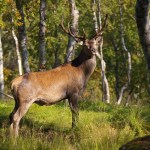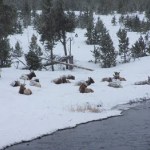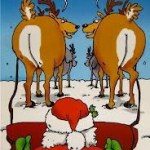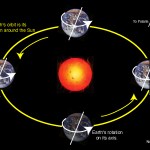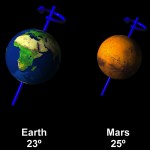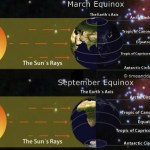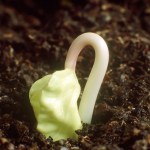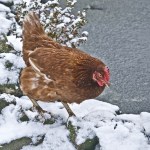winter
Image of common hamster by katanski - Own work, CC BY 3.0, https://commons.wikimedia.org/w/index.php?curid=10550799
During hibernation common hamsters (Cricetus cricetus) alternate their time between bouts of torpor during which their metabolic rate drops and body temperature is low and arousal during which body temperature is normal. Hibernation allows animals to conserve energy although it is not without costs as it often results in memory deficits, cell damage and reduced immune function. Thus some studies have suggested that animals with sufficient food stores will not…
Image of a Siberian hamster from Wikimedia Commons
Exposing Siberian hamsters (Phodopus sungorus) to shorter photoperiods (think winter) for about two months causes the animals to spontaneously undergo daily bouts of torpor during which time they decrease metabolic rate to conserve energy. New research published in the American Journal of Physiology - Regulatory, Integrative and Comparative Physiology was designed to examine whether decreases in growth hormone secretion was involved in stimulating these daily torpor episodes. By administering a chemical that…
Image of a red deer from Wikimedia Commons. Image by: Jörg Hempel
Dr. Walter Arnold (University of Vienna) and colleagues were interested in studying how Northern ungulates cope (physiologically) with limited food supplies during the winter months. Ungulates are known to reduce energy expenditure during the winter. A new study published Wednesday in the American Journal of Physiology-Regulatory, Integrative and Comparative Physiology describes how these animals adjust their nutritional intake. Dr. Arnold's team examined intestinal transport of…
Image from: Idaho Nature Notes, http://idahonaturenotes.blogspot.com/2012/01/backyard-deer.html
This was a very good question brought up by a reader of the prior post. As it turns out, deer and elk move between summer and winter ranges. The winter range is at a lower elevation where there are more resources such as shrubs and grasses. Since they eat similar foods, they often compete for resources during the winter when they are more scarce. Since elk are larger and more aggressive, they often win these competitions. According to an article from the University of Idaho, elk are also more…
Unlike Santa's reindeer living in the lap of luxury at the North Pole, wild reindeer that live in the barren tundra have to find their own food. Being too chilly for trees, the tundra is hospitable to only shrubs, grasses and lichen, which are abundant during the warmer seasons. However, during the winter when the grasses and shrubs are scarce reindeer survive off lichen, comprised mainly of quick-energy in the form of carbohydrates. In fact, they reportedly eat about 4-11 pounds of lichen each day.
Source:
Animal Planet
"In the depth of winter I finally learned that there was in me an invincible summer." -Albert Camus
As the year draws to a close, we approach a very special time of year, at least from an astronomical perspective. This Saturday, December 21st, will mark the Winter Solstice in the Northern Hemisphere (or the Summer Solstice in the Southern), or the date where the Earth's axis is tilted its maximal amount away from (or towards) the Sun, as viewed from an observer in the Northern (or Southern) Hemisphere.
Image credit: Mrs. Snyder at the Seven Hills School.
While it's pretty common knowledge…
I love winter. Or rather, I love it until about the end of February, at which point I want spring to come. But right now I'm enjoying cozy days in front of the fire (actually, I'm finishing a book, so mostly they are freezing days up in my chilly office, but since this is book #5 written at least partly over a cold season, I'm used to it - at least I now the fire is there ;-))), knitting, waiting for my seed order to come, thinking up other things to put on a few additional seed orders (Brad sent me a link to this wonderful resource if you are looking for something specific -…
"You better lose yourself in the music, the moment
You own it, you better never let it go
You only get one shot, do not miss your chance to blow
This opportunity comes once in a lifetime yo" -Eminem
Here on Earth, a cold, frozen winter lasts three months, with the Sun's rays pointed a maximum of 23.5 extra degrees away from your part of the Earth from normal.
On Mars, however, winters are even more severe.
Image credit: Calvin J. Hamilton.
With a slightly more severe axial tilt than Earth, an extra 78 million kilometers separating it from the Sun than our planet, and the coldest…
"Soon the earth will tilt on its axis and begin to dance to the reggae beat to the accompaniment of earthquake. And who can resist the dance of the earthquake, mon?" -Peter Tosh
Every year, there are two special days where every place on Earth receives the same amount of sunlight -- 12 hours -- split evenly between night and day: the equinoxes!
Image credit: timeanddate.com.
Like all known objects that revolve around another due to gravity, the Earth rotates along its journey around the Sun. But on those two days of the equinox (from the Latin, meaning "equal nights"), the Earth's axis-of-…
Sorry for the extended radio silence. A combination of Apprentice Weekend, followed by Fellowship Application due, followed by ice storm related power outage, followed by internet outage of indeterminate cause, followed by visitor, followed by a series of family administrative things put off because of all the previous means that I'm just now online, and my email is still down, so if you've tried to contact me, please be patient! I'm not ignoring you, just discombobulated. I apologize for the difficulties - especially if you have tried to register for the garden design class and been…
Just a note: Eric stepped on the overpriced device that allows us to have a slow and primitive but still wireless connection out here in middle-of-nowhere-land this morning. It is still working, miraculously (it doesn't look like it should be working), but I expect to lose internet access basically at any moment. So if this blog disappears, it isn't that I don't care, it is that my husband is a klutz. Since I'm a much bigger klutz, and have broken even more important things over the years, I can't really whine about it. But just FYI, I'm not sure how much internet access I'll have until…
Something told the wild geese
It was time to go,
Though the fields lay golden
Something whispered, "snow."
Leaves were green and stirring,
Berries, luster-glossed,
But beneath warm feathers
Something cautioned, "frost."
All the sagging orchards
Steamed with amber spice,
But each wild breast stiffened
At remembered ice.
Something told the wild geese
It was time to fly,
Summer sun was on their wings,
Winter in their cry. - Rachel Field
I'm trying to get back to normal - even though things aren't quite normal here. In the last three weeks my blogging home has melted down twice and my physical…
Yellowstone National Park is an amazing place. I stayed there for three days longer than I had originally planned and I still was not ready to leave it. Even if I had spent another week there I still would not have seen all the natural wonders of the park, but fortunately the BBC recently sent film crews to Yellowstone to capture its natural history in every season. These vignettes were expertly strung together in the miniseries Yellowstone: Battle for Life, and embedded below is one of the scenes in which a fox tries to catch dinner in the middle of winter:
see more Lolcats and funny…
You'd be surprised at how warm our barn is on winter nights. A few nights ago, the thermometer read -10 as I headed out the door, and the wind was howling, but inside the barn it was below freezing, but surprisingly tolerable. Close down a comparatively small space, insulate the floors with dry bedding and fill it with warm life, and the combined body heats make it surprisingly pleasant.
Up in the rafters, some of the chickens and the turkeys are nested for the night, and they snuggle together. In the rest of the barn, they also nest in a heap. The goats snuggle together for warmth,…
Yesterday afternoon, perhaps tired of keeping up with the subzero temps, our furnace up and quit. We were able to keep the house somewhat above freezing until the repair guy installed the replacement bits this morning. We're all fixed now. But the outage wasn't without a bright side: the ice crystals on the windows grew especially wild:
Ice on the windows:
Photo details: Canon 100mm f2.8 macro lens on a Canon EOS 50D.
(top) ISO 250, f/4, 1/320 sec; (bottom )ISO 160, f/5, 1/500 sec
Picture it. A bridge in Connecticut, January 2004. Having left New York at 4:30 am, I settled into my Honda hoping to reach Maine before nightfall. The first couple hours were uneventful until... suddenly the wheel locked, the brakes failed and my car spun haphazardly across three lanes to face oncoming traffic. Yet somehow, we didn't suffer a scratch between us.
I was lucky, and I want to encourage readers in the northeast to keep black ice in mind as you brave the roads this morning. And since this is scienceblogs, what causes the slippery stuff anyway?
Black ice is ice that forms…
